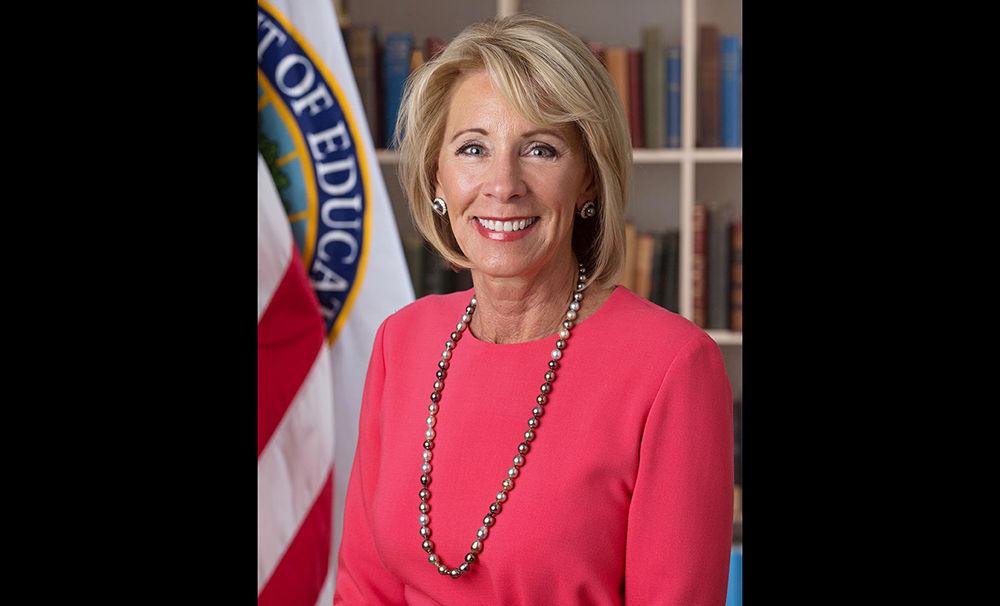After rescinding the Obama administration’s “Dear Colleague” letter last fall, Betsy DeVos, the United States secretary of education, has announced a new proposal instructing colleges—NC State included—on how they should address Title IX issues, specifically those dealing with sexual harassment.
Contrary to the Obama administration, DeVos’ proposed policy changes would allow schools to set their own evidentiary standard for determining responsibility. The plan would also allow survivors of sexual assault and the accused the options to cross-examine and request evidence from one another, viewed by the Obama administration as a potential traumatic experience for the survivor.
In addition, where the Dear Colleague letter required schools to investigate reports of sexual harassment regardless of the incident’s location, DeVos plans to only require schools to investigate when the incident occurs on campus. This leaves off-campus housing and off-campus parties out of the equation.
“There should be a say for the victim because some may choose to mediate and some may not,” said Laurel Nicosia, a first-year studying human biology. “And as long as there are students involved, it should be addressed, whether it’s on campus or off campus.”
Steven Greene, a professor of public and international affairs at NC State, says that Title IX and its implications towards sexual violence and sexual harassment on college campuses can potentially impact a woman’s educational career.
“In a lot of areas of life, courts and legislatures have determined that if you are a victim of sexual violence and sexual harassment, it is pretty hard to say that you are truly having an equal opportunity, be that your workplace, be that your place of education,” Greene said. “When there are systematic problems of sexual violence and sexual harassment, then that is thereby denying women their equal educational opportunity.”
According to the New York Times, these changes would “bolster the rights of students accused of assault, harassment or rape, reduce liability for institutions of higher education and encourage schools to provide more support for victims.”
Carlyn Wright-Eakes, rape prevention education coordinator for the Women’s Center at NC State, described the seriousness of this issue and how the Women’s Center is addressing sexual violence and sexual assault at NC State.
“We do know from national statistics that about 20 percent of women will experience attempted or completed sexual assault during their college years,” Wright-Eakes said. “And it is important for young people to be able to be in college and really enjoy their academic experience, and trauma can have a major impact on that person’s ability to learn and engage in an academic environment. Creating a safe and welcoming environment for students is incredibly important and is what the Women’s Center is trying to do.”
Caitlyn Poplaski, a first-year studying zoology, said that Title IX is important on all college campuses, especially those like NC State that are known for STEM, an area where women are still underrepresented
“It is important that [everyone] gets equal opportunities, because we are all here to get an education, so we should have the same resources to be able to get to our common goal,” Poplaski said. “If somebody comes forward about [sexual harassment], the college needs to take action immediately.”
Apart from rescinding the Dear Colleague letter, DeVos has given her input on various interpretations of Title IX, including university evidentiary standard, mediation and location of the incident.
“It is the job of the Department of Education to determine the application of Title IX for colleges and universities,” Greene said. “The Dear Colleague letter is an interpretation of Title IX, saying that universities are not doing enough about sexual harassment on campus and that they need to do more. Betsy DeVos is trying to strike what is a more appropriate balance… maybe making a shift back towards being a little more thoughtful about respecting the due process rights.”
Poplaski said that sexual harassment and sexual violence awareness is the first step to addressing this issue on college campuses.
“It is a serious thing and people don’t like to talk about it, but we need to,” Poplaski said. “[Survivors] need resources both in court and for direct medical help.”
Wright-Eakes described what resources are available to NC State students, and the impact that the proposed Title IX changes would have on these resources.
“The Women’s Center is a place where survivors can come to have accompaniment,” Wright-Eakes said. “We help survivors get connected with counseling; we help students get connected with student legal services; we also work with housing if a student needs housing accommodations, or academic accommodations. Regardless of any changes that are made to Title IX, the Women’s Center will continue to provide support to survivors of sexual assault and sexual violence.”
Greene noted the need to discuss sexual violence as well, not just from a support and prevention standpoint, but from a political and legislative standpoint.
“Sexual violence is a real problem in society,” Greene said. “We want victims to come forward and know that they are going to be treated fairly. If these changes make that less so, then that is a problem. It is a complex issue and let’s grapple with the reality of that complexity.”
To learn more about the Women’s Center and some upcoming events including drop-in counseling, trainings by The Movement, and special events students can visit their website or follow on social media.
To file a report and get help, visit the Office of Institutional Equity or the Women’s Center, go to Safe at NC State or call the NC State 24-hour Sexual Assault Helpline: (919) 515-4444.








